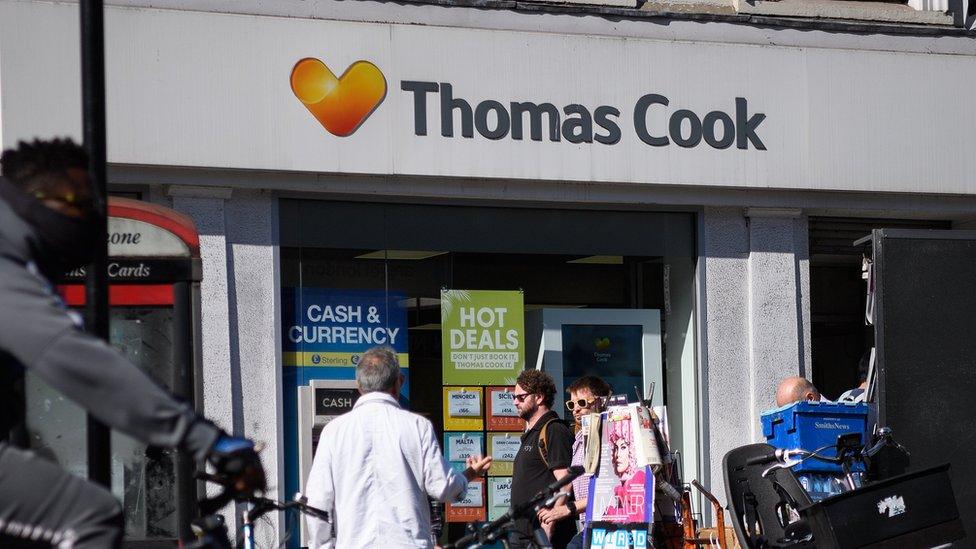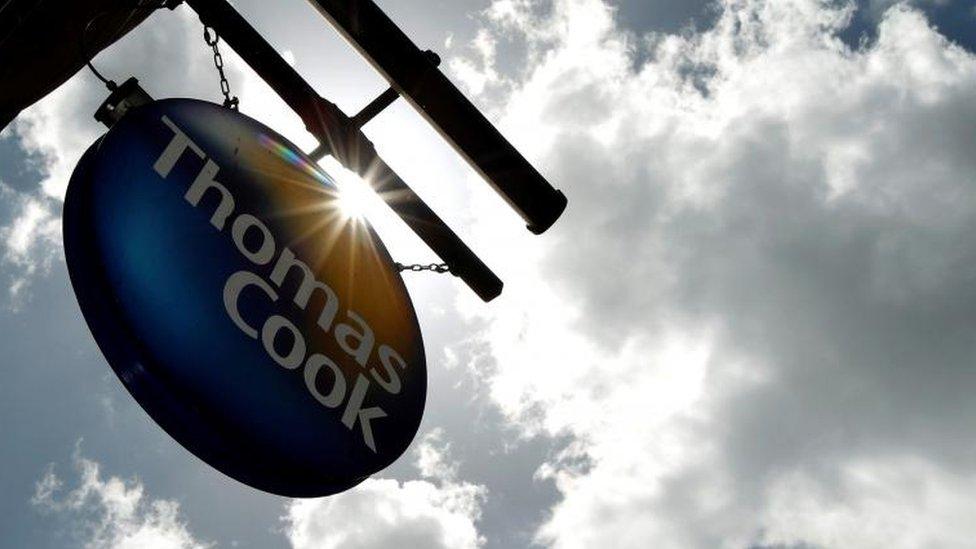Why Thomas Cook might struggle to book a bailout
- Published

If Thomas Cook is waiting for the government to save the day, and the holiday plans of 150,000 UK travellers, it may be disappointed.
The mood music coming out of government departments is not positive.
First - and most important - I'm told that the government does not recognise the choice being presented as being between spending £200m on a cash injection to save the company versus a bill of £600m to repatriate UK holiday makers.
The government's understanding is that most Thomas Cook customers will be covered by travel insurance or Atol protection - a fund paid for through industry levies. Questioning the repatriation costs seems a very clear signal that it does not believe the choice is as straightforward as £200m this weekend or £600m next week.
Secondly, government sources point out that the UK was the country that pushed hardest within the EU for the imposition of state aid rules to be enforced after many years of EU governments rescuing sensitive industries like airlines and car makers. The government's previous refusal to offer assistance to companies like Carillion would make a U-turn on this approach very difficult in principle and in practice.
Although the UK is scheduled to leave the EU on 31 October, any new relationship is yet to be determined and issues such as respective rules on state aid will be part of that discussion. The EU in particular is keen to preserve a "level playing field" when it comes to European competition.
The matter is being handled by the Department for Transport rather than Department for Business, Energy and Industrial Strategy. This was department organised the repatriation of customers of the failed airline Monarch.
In the past, the government has supported businesses through loan guarantees but its not thought that will be enough to convince lenders to back the company's restructuring.
What is needed is additional equity capital - in other words - money that does not have a repayment schedule - unlike a loan.
A private sector deal may still be possible but the noises coming out of the government at the moment suggest that the UK taxpayer is unlikely to become Thomas Cook's saviour.
- Published23 September 2019

- Published21 September 2019

- Published30 September 2019

